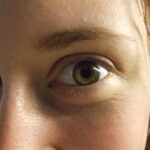Summer Heat and Dry Eyes: What You Can Do to Stay Comfortable

Summer is that time of the year with plenty of sunshine and fresh air. The air is so clear and nature shows its most beautiful side in almost every part of the world; no wonder many people love to take vacations and engage in several fun outdoor activities during this period.
You hear a lot of people getting excited when talking a lot about summer bodies because of the beach visits, bikini flaunting, swimming exercises, and many more. We are all excited this period, aren’t we? but, it can be challenging for a few people because of dry eye disease.
Did you know a lot of people have complained about experiencing dry eyes during this seasonal change because of the hot weather and constant air conditioning exposure at home, work, or in the car? There are a lot of elements or factors that are responsible for this condition where your eyes feel dry, uncomfortable and itchy.
Worry not, we will be breaking everything down in this article and how you can overcome the eye discomfort challenges so you can experience the best summer.
Elements of Summer Months
A lot happens in the summer months. There is dry air, a hot sun with a lot of exposure to it, dry air that can be a bit uncomfortable, and faster dehydration because of the hot temperature. To cool down these effects to a bearable extent, we often spend a lot of time in air-conditioned rooms, which also have their downside.
When you sit in an air-conditioned room, space, or car for a very long time, your eyes will gradually lose moisture because of the faster dehydration of tear film, which is in charge of keeping the eyes hydrated and protecting them.
As you know, the tear film is a thin layer of moisture that covers the eye’s surface so it can be clear of impurities and any other form of danger. Shortage in the production of this tear film due to fast evaporation or any other factors can lead to dry eye symptoms, which are also called dry eye syndrome or disease.
Causes Tied to Dry Eyes in the Summer
- High exposure to air conditioners that are meant for cooling the body. However, because it reduces humidity, it causes your tear film to evaporate more quickly.
- If you swim a lot, the Chlorine in swimming pools for disinfection can irritate your eyes. When this happens, your eyes lose natural moisture, leaving them dry.
- There are a lot of wind and breezes in summer, which also feel nice but you should avoid direct contact with your eyes because they can dry up your tear film, leading to itchiness and irritation.
- We understand the temptation to spend a lot of time outdoors and it is valid, but when you go out without protecting your eyes from the sun, it can lead to dryness and sensitivity to light.
- Do you know airborne allergens? Pollen is one of them, and dust is usually abundant in the air during summer, increasing eye irritation and dry eye symptoms.
- Your body loses a lot of water during this period. If you do not replace that water with enough, your eyes can become dehydrated, leading to dryness.
Common Dry Eye Symptoms Associated With Summer
If you are in the summer months and you experience any or most of the symptoms listed below, take it as a dry eye condition.
- A stinging or burning sensation
- Eyes that feel dry or gritty
- Red eyes
- Sensitivity to light
- Eye fatigue
- Blurry vision
- Feeling like something is in your eye
Keeping Your Eyes Comfortable in Summer
Does dry eyes in summer mean we shouldn’t enjoy the goodness of summer? absolutely not! You can enjoy your favorite seasonal activities without the fear of dry eyes if you follow these tips:
- Use recommended artificial tears or lubricating eye drops often. It will keep your eyes moist.
- Try using wraparound sunglasses to block the dust, wind, and harmful sunlight; this will reduce the evaporation of tears in the eyes.
- Drink plenty of water to increase tear production in your eyes, especially if you spend a lot of time outside.
- Air conditioning is nice but try to reduce the time you spend in the environment. Also, don’t sit directly in front of the airflow.
- Do you stay indoors? then keep the moisture constant by using a humidifier indoors so your eyes can retain moisture. simple right?
- When swimming, wear goggles to keep your eyes from chlorine.
- Your meibomian glands produces oil and it can be helped with the use of a warm compress to keep it open, which keeps your tear film from drying too quickly.
- Reduce screen time and take breaks. Blink regularly while using the screen and put on computer glasses to avoid eye strain. If you must use your devices at night, turn on the night mode or blue filters so the screen doesn’t make your eyes dry.
- Foods rich in Omega-3 fatty acids, like fish, can improve your tear quality, especially in older adults.
When to See an Eye Doctor
When you experience symptoms of dry eyes continuously and every DIY care is not working well to help your irritated eyes, you should visit an eye doctor for medical attention so your tear production can be checked and several treatment options that suit your condition can be recommended.
Naturally, some people have fewer tears or poor-quality tears, which affects the moisture of their eyes. an eye exam will reveal the cause and a treatment plan that is aimed at increasing their tear quality will be made available for them.
In some cases, certain medications or medical conditions can cause dry eyes. An eye doctor can help find the reason and provide relief.
Lifestyle Changes You Should Practice to Help Dry Eye Symptoms
Medical treatment alone is not enough. Keep in mind that you must be very intentional about your lifestyle because they are enough to make a big difference no matter how small they are.
- Wash your face and eyes gently with slightly warm water to remove dust or pollen
- Avoid rubbing your eyes when they feel irritated; it will only worsen it
- Protect your eyes from direct sun and windy conditions to keep your eyes moist
- Rest your eyes often if using a screen for a long time by following the 20-20-20 rule
- Eat a balanced diet for body and eye nourishment.
Final Thoughts
As you know, dry eyes can be very uncomfortable, and the situation preventing you from enjoying summer to the fullest can be very annoying. However, when you are well informed about the symptoms, management, and tips to keep your eyes moist, your summer will surely be a blast.
Making these little recommended lifestyle changes can drastically reduce dry eye syndrome. Your eyes will retain more tears even during seasonal changes, reducing irritation and providing relief.
Bibliography
https://www.nei.nih.gov/learn-about-eye-health/eye-conditions-and-diseases/dry-eye
https://www.mayoclinic.org/diseases-conditions/dry-eyes/symptoms-causes/syc-20371863
https://www.mayoclinic.org/diseases-conditions/dry-eyes/diagnosis-treatment/drc-20371869
https://www.mayoclinic.org/diseases-conditions/dry-eyes/expert-answers/artificial-tears/faq-20058422








